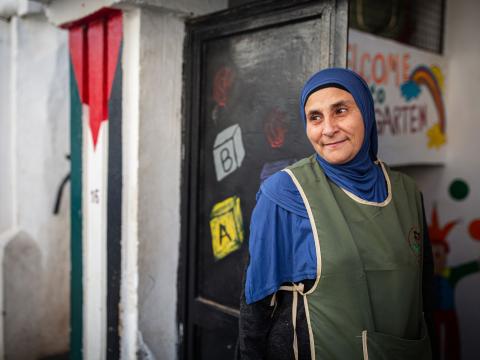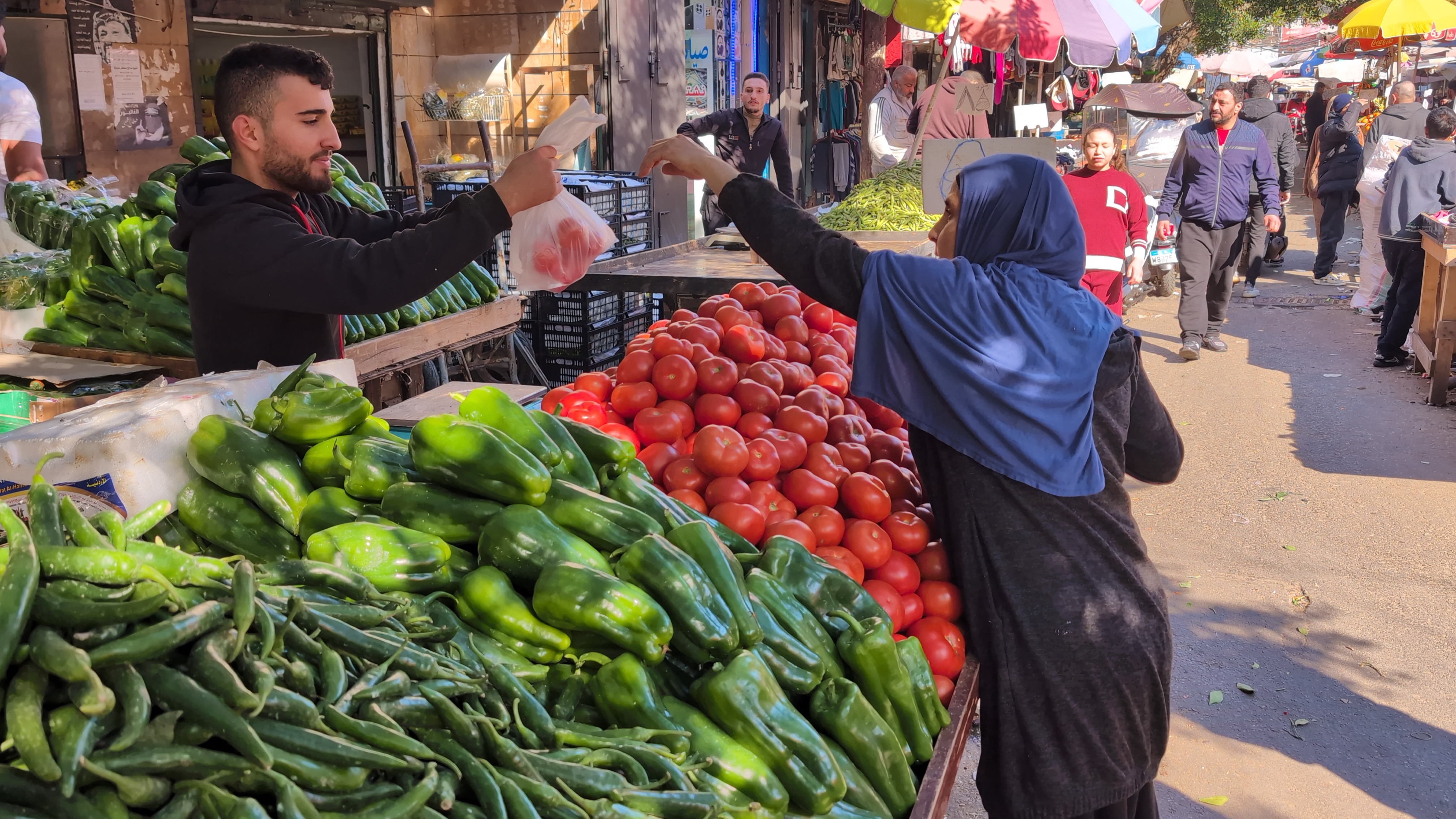Samia’s story: A mother’s struggle against hunger

Behind the bustling souk in the heart of Beirut, the scent of sautéed onions fills the air. In a modest community kitchen, Samia stirs a large pot of Mujaddara—lentils, rice, and caramelised onions. She is not just cooking; she is providing warmth, sustenance, and a moment of relief to hungry children who gather in the kindergarten below.
Samia, like many other women here, calls the Shatila camp home. The camp, originally built in 1949 for Palestinian refugees, has long been a place of resilience. Yet today, survival feels harder than ever. Economic collapse and spiralling food prices have left families struggling to put even the most basic meals on the table.
The kitchen, originally built as a World Vision initiative, was once a source of regular nourishment, now offers a meal only once a week. “It affects children’s health a lot,” Samia says, her voice edged with concern. “Meat and chicken are not always available, and fish is out of the question.”
The recent conflict has only worsened the situation, pushing inflation higher and disrupting supply chains, turning once-affordable staples into luxuries. As food prices continue to soar, many parents—already faced with impossible choices—are now forced to ration meals to make supplies last. “We live day by day because cooking has become very expensive,” Samia explains. “If a dish contains meat, I used to use half a kilogram. Now, I stretch that same amount across three dishes just to make it last.”

The impact on children is profound. They go to bed with empty stomachs, their growth and health at risk. Yet despite these hardships, the kindergarten remains a haven. When Samia and the other women serve Mujaddara, the children’s eyes light up. Four-year-old Rana clutches her plate with delight. “My mother makes this for me,” she says with a smile. “It’s my favourite.”
For many of the children, this simple meal is the most nutritious food they will have all week.
As Lebanon grapples with an escalating crisis, World Vision Lebanon and Ahlam Lajea – our local partner running the community kitchen, provide a crucial lifeline. When displaced families found it nearly impossible to source food, World Vision stepped in, delivering food parcels and hot meals to those in greatest need. But for Samia and countless mothers like her, the fear remains—how long can they hold on? “You have to make do with what you have because the situation affects everyone,” she says.
And yet, in that small kitchen, amid the rising cost of survival, there is something no crisis can take away: the unwavering love of a mother and the determination of a community to feed its children, even in the darkest of times.
Note: The Integrated Food Security Phase Classification (IPC) analysis for Lebanon, conducted by FAO, WFP, and the Ministry of Agriculture, reveals that 1.65 million people are experiencing crisis or emergency food insecurity (IPC Phase 3+), up from 1.26 million prior to the crisis. Of these, 201,000 face emergency levels (IPC Phase 4), double the previous figure. Refugees are particularly vulnerable, with 594,000 Syrian refugees (40%) and 89,000 Palestinian refugees (40%) in crisis, alongside 970,000 Lebanese residents (25%). https://www.ipcinfo.org/ipc-country-analysis/details-map/en/c/1159456/?iso3=LBN